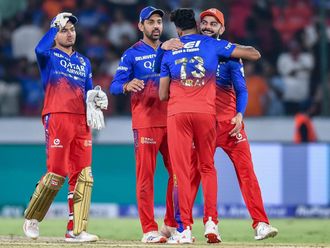New York: NHL teams that sent a large number of players to the 2014 Olympics had experienced a significant drop in performance after the Sochi Games, while teams that sent few players had a slight improvement, according to a study by a University of Massachusetts sports economist.
Neil Longley, a professor at the university’s Isenberg School of Management who compiled the figures, called the findings preliminary. But if they hold up, they will be consistent with a study he published in 2012 that examined NHL teams’ performance in each Olympic year since the league started participating in 1998.
The study found that for every player an NHL club sent to the Olympics, the club’s goal differential dropped by 0.088 of a goal a game compared with its performance before the games. Clubs that sent many players to the Olympics in 1998, 2002, 2006 and 2010 had bigger performance drop-offs, on the whole, than clubs that sent few players.
This season’s preliminary findings, based on figures compiled through Friday’s games, showed that goal differential dropped by 0.077 per Olympian.
Longley cautioned that this season’s sample size is much smaller than the one in the original study, and has yet to undergo statistical testing that controls for outside factors.
But he said this year’s figures seem consistent with the 2012 paper.
“I think it’s pretty significant evidence, combined with the original study,” Longley said. “There’s definitely some post-Olympic impact on team performance.”
The goal differential of teams that sent seven or more players to the Olympics (Chicago, Detroit, St. Louis, Anaheim, Montreal, the New York Rangers, Pittsburgh and Vancouver) collectively dropped an average of 0.33 goals a game. Of those teams, only the Canucks failed to make the playoffs, but they were in position for a postseason berth when the Olympic break began.
Meanwhile the goal differential of teams that sent three or fewer players to the Olympics (Calgary, Dallas, Edmonton, Toronto, Florida, Nashville and Ottawa) improved by 0.09 goals a game. Only one of those teams - Dallas - is headed to the playoffs.
The largest drops among teams sending seven or more players to Sochi were by St. Louis (minus 1.11 goals a game), Pittsburgh (minus 1.01), Anaheim (minus 0.52), Chicago (minus 0.50) and Vancouver (minus 0.47).
The Rangers were an anomaly in the group, with their goal differential actually increasing 0.62 goals per game.
Injuries to Olympians like Jonathan Toews, Patrick Kane, Evgeni Malkin and David Backes contributed to some of these teams’ woes. Longley pointed out that it is impossible to determine whether the injuries could be attributed to Olympic-related physical or emotional fatigue.
Longley’s 2012 study, published in The International Journal of Sport Finance, is believed to be the only one to quantify the Olympic effect on NHL clubs.












